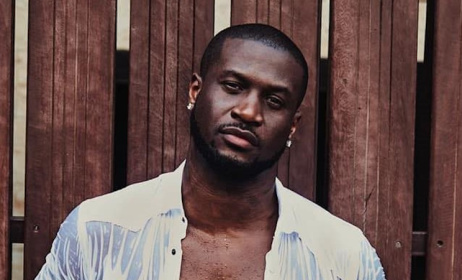Nigerian highlife legend Mike Ejeagha’s 1983 hit revived by viral skit
Nigerian highlife icon Mike ‘Gentleman’ Ejeagha has expressed gratitude to comic Chukwuebuka Emmanuel ‘Brain Jotter’ Amuzie after his viral skit revived interest in Ejeagha’s 1983 hit ‘Ka Esi Le Onye Isi Oche’.
 Nigerian comic Chukwuebuka Emmanuel 'Brain Jotter' Amuzie with highlife icon Mike ‘Gentleman’ Ejeagha. Photo: Instagram
Nigerian comic Chukwuebuka Emmanuel 'Brain Jotter' Amuzie with highlife icon Mike ‘Gentleman’ Ejeagha. Photo: Instagram
Ninety-one-year-old Ejeagha, renowned for his clever and conscious Igbo storytelling through African folklore and unique blend of traditional rhythms, expressed his appreciation upon welcoming the comic into his home. Amuzie captured their interaction in a mini-documentary shared on social media.
The record, taken from Ejeagha’s Akuko Na Egwu Vol. 1 album, depicts a tale where a shrewd tortoise tricks an elephant to secure a princess’ hand in marriage. The skit, meanwhile, humorously illustrates the song’s lyrics with Amuzie and a friend performing a lighthearted leg dance followed by a chase. Its success soon sparked an online challenge, with celebrities like singer Victony joining in to replicate the routine.
Speaking on behalf of his father, who was moved to tears by Amuzie’s gesture, a son of Ejeagha said: “[It’s been] over 30-something years [since] that music was recorded but as God might have it, you Brain Jotter would be the one to make this song go viral – and it will continue to go viral. God bless you.”
During the visit, Amuzie and his team also donated ₦2 million (about $1 200) to Ejeagha to assist with the musician’s care.
On social media, Amuzie’s gesture has been lauded by contemporary Nigerian music industry heavyweights including Mr Eazi, 2Baba and Don Jazzy.
“God bless you more my brother, for making this happen,” singer Kcee commented.
Meanwhile, Amuzie has confirmed that any earnings from incorporating Ejeagha’s work in the skit will be fully directed to the musician.
“No money was made from this song for me,” he said. “The truth is that all revenue generated from his music goes back to him, his record label, and his production company.”
Ejeagha’s music career began with an Ogene group and was further inspired by guitarists Moses Aduba and Cyprian Uzochiawa. By 1950, he formed his band, Mike Ejeagha and Merrymakers. His fame grew after appearing on the Nigerian Broadcasting Service’s Guitar Playtime, leading to radio performances and the Premier Dance Band. Post-Nigerian Civil War (circa 1970), his album Omekagu with Polygram Records boosted his prominence. He also gained recognition for Akuko n’egwu (storytelling through music) on the Anambra Broadcasting Service, where he shared weekly folktales.



























Commentaires
s'identifier or register to post comments